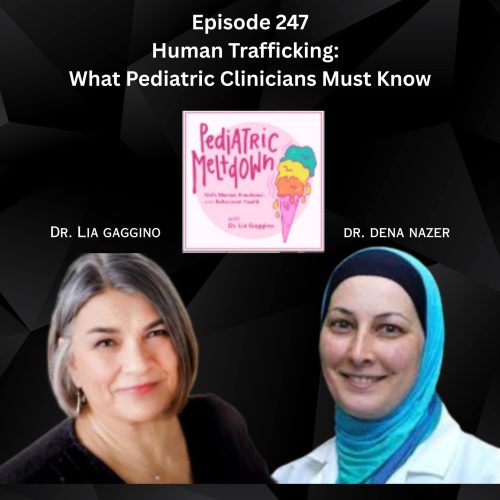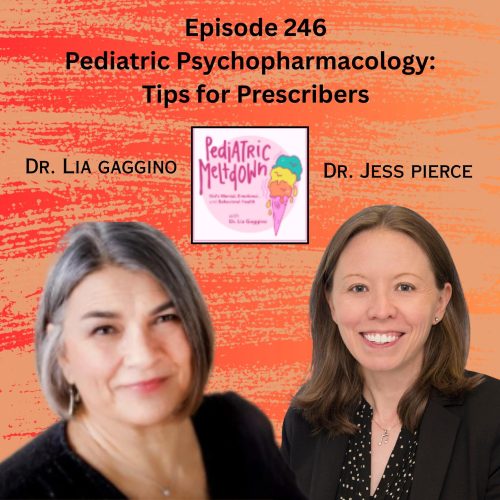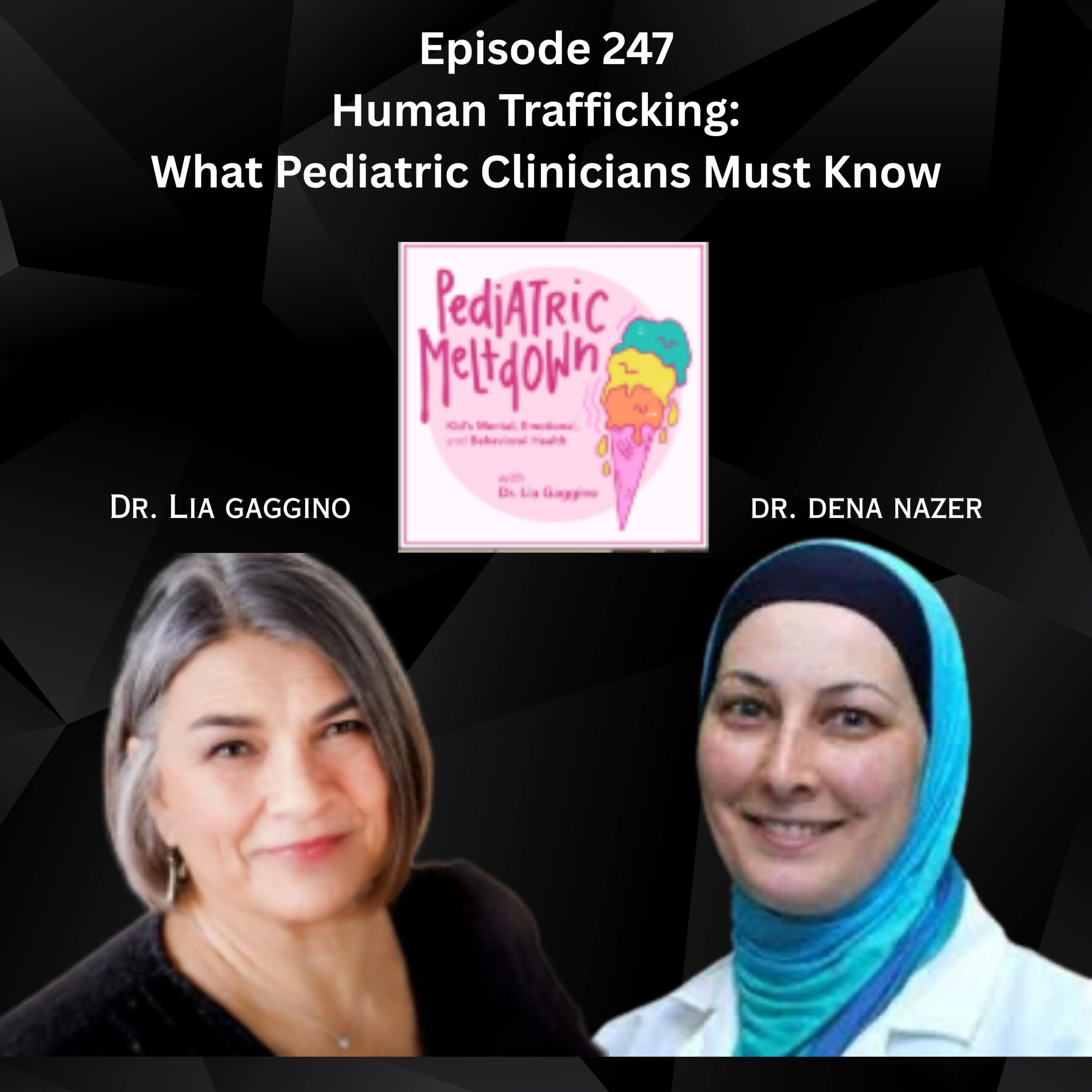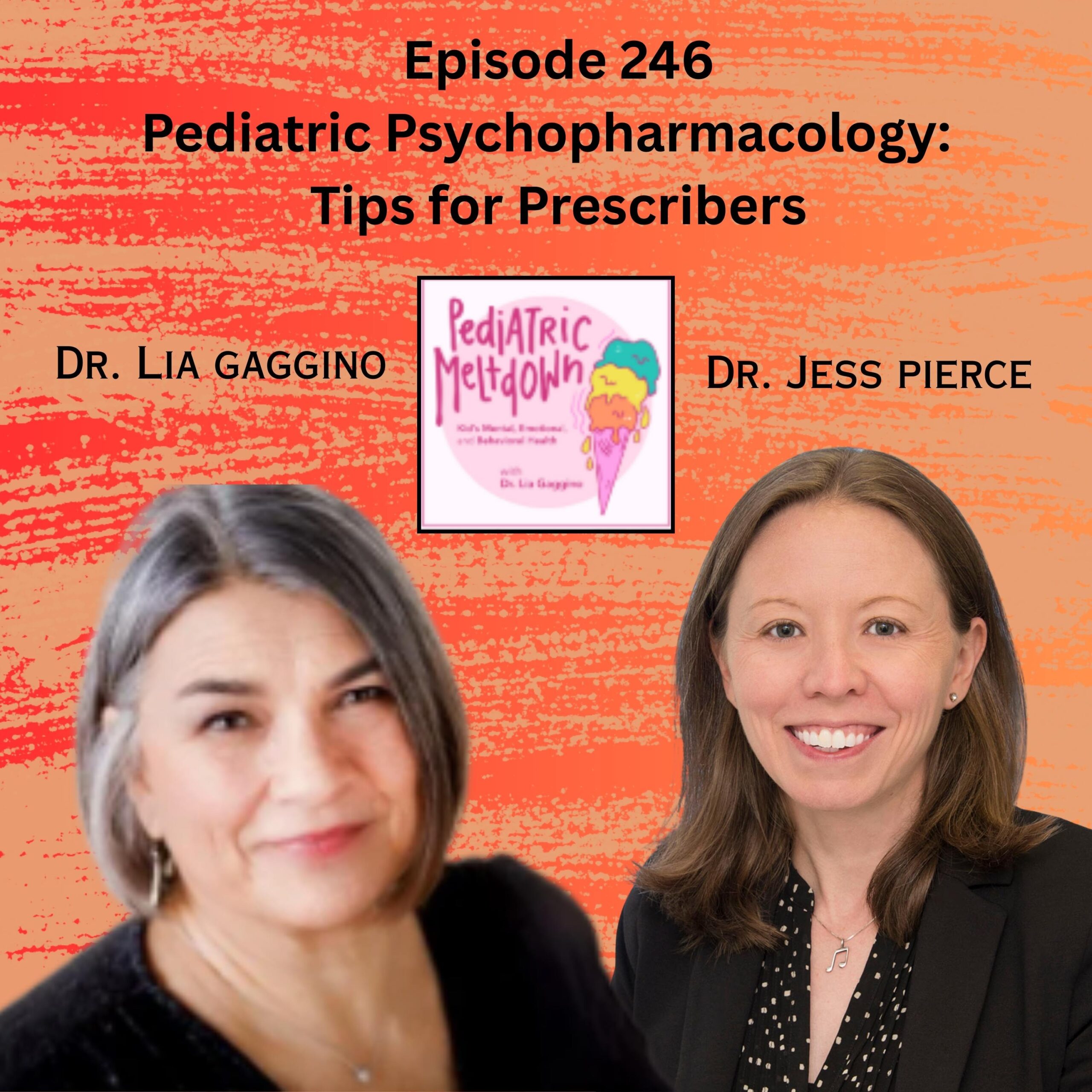Dr. Scheid is a practicing Child and Adolescent Psychiatrist and Associate Professor at MSU whose primary research interests are in the area of mental health services and public policy for children and adolescents with limited resources and multiple needs. Dr. Scheid’s work encompasses the full scope of child and adolescent psychiatry including disruptive behaviors, mood, and anxiety disorders, and eating disorders and much of her focus is on improving the health and well-being of the youth served by the Michigan Department of Health and Human Services. She welcomes collaboration with primary care providers to promote optimal care to some of our most vulnerable children.
Let’s dive right in and hear Dr. Scheid’s thoughts about improving psychiatric care for all children and particularly those in the child welfare system.
[00:01 – 09:13] Opening Segment
- Introducing today’s guest, Dr. Jeanette Scheid
- Expertise and work
- How we know each other
- Dr. Scheid gives some background on her story
- Started in pediatric hematology
- Always wanted to work with kids
- First rotation in psychiatry
- First mentors at MSU
- Dr. Scheid talks about shifting careers
- What is it that excites you
- Look around and look at your colleagues
- Thinks about the day to day aspects
[09:14 – 24:45] Dealing with Child Trauma in the Welfare System
- Dr. Scheid talks about her consultancy with the Child Welfare System
- Interests in trauma
- Working in Pittsburgh
- Open doors to become a consultant
- Dr. Scheid’s training focuses
- Understanding the other point of view
- Foster parents lack empowerment
- You can’t assume
- Everyone brings in their own experience
- Experiences and lessons with children in bio-families
- Everyone has a unique experience
- How can we support the parent
- Strengths and weaknesses analysis
- All or nothing may not be the answer
- Dealing with gaps in background information
- How do you find out the best practices for the individual
- Acknowledge what we don’t know
[24:56 – 36:56] Deprescribing and Polypharmacy
- Dr. Scheid’s insights on polypharmacy
- The presence of other problems
- Hard to know a single diagnosis
- Take a step back and look at the history
- Is there evidence of benefits
- Back away based on risk
- Start slow as you go down
- I summarize my own experience
- Dealing with dependency
- Depression example
- Gauging this impact of symptoms
- Aggressive behavior assessment
- Psychosocial intervention
- Links you can find below
- The issues of diagnosing
- The levels of confidence
[36:57 – 44:12] Building Relationships with Psychiatry Colleagues
- Dr. Scheid’s thoughts on relationships with colleagues in psychiatry
- It all requires time and energy
- Getting the most recent documentation and records
- Having open communication
- Dr. Scheid’s example
- Getting to know your colleagues
- It’s fun and informative
- Making friends and connections
[44:13 – 53:19] Closing Segment
- Dr. Scheid talks about resources that can help
- Links below
- Dr. Scheid’s advice to her younger self
- Dealing with the answer no
- Don’t be afraid to name your lack of knowledge
- Cultivate your interest and capacity as a teacher
- Final Takeaways
- Propelled to do work because of a book
- It’s ok to change tracks
- Step outside the hospital walls
- Identifying trauma in the welfare system
- Notes on deprescribing
- Follow your passion
- Look into your field
- Cultivate teaching capacity
- Ask for releases
- Build relationships and network
Tweetable Quotes:
“Everybody comes to every situation wearing their own experience… step back and ask, ‘How do my partners view this situation and how can we try to make sure that we’re sharing a 360 view?” – Dr. Jeanette Scheid
“Take a step back and look at the history… can anybody tell you what were the reasons for that?” – Dr. Jeanette Scheid
“Never accept the answer ‘no’ when you want to get something done, unless you’ve heard it from three different people at three different spots…” – Dr. Jeanette Scheid
Resources Mentioned:
Books:
Links/Articles:
- michigan.gov/mdhhs/fosteringmentalhealth
- Treatment for maladaptive aggression in Youth: Cert Guidelines I
- Knapp P, Chait A, Pappadopulos E, Crystal S, Jensen PS; T-MAY Steering Group. Pediatrics
- Treatment for maladaptive aggression in Youth: Cert Guidelines II
- Scotto Rosato N, Correll CU, Pappadopulos E, Chait A, Crystal S, Jensen PS; Treatment of Maladaptive Aggressive in Youth Steering Committee. Pediatrics
- Treatment recommendations for the use of antipsychotics for aggressive youth (TRAY) Part II
- Pappadopulos E, Macintyre Li JD, Crismon ML, Findling RL, Malone RP, Derivan A, Schooler N, Sikich L, Greenhill L, Schur SB, Felton CJ, Kranzler H, Rube DM, Sverd J, Finnerty M, Ketner S, Siennick SE, Jensen PS. J Am Acad Child Adolesc Psychiatry 2003 42(2): 145-161
If you’d like to connect with Dr. Scheid, email scheidj2@michigan.gov, Also, visit psychiatry.msu.edu/about/faculty-directory/scheid to learn more.
If you’d like to connect with me, you can find me at LinkedIn, Facebook, and Twitter or email me at gagginol@yahoo.com. To learn more about me visit https://www.medicalbhs.com/








